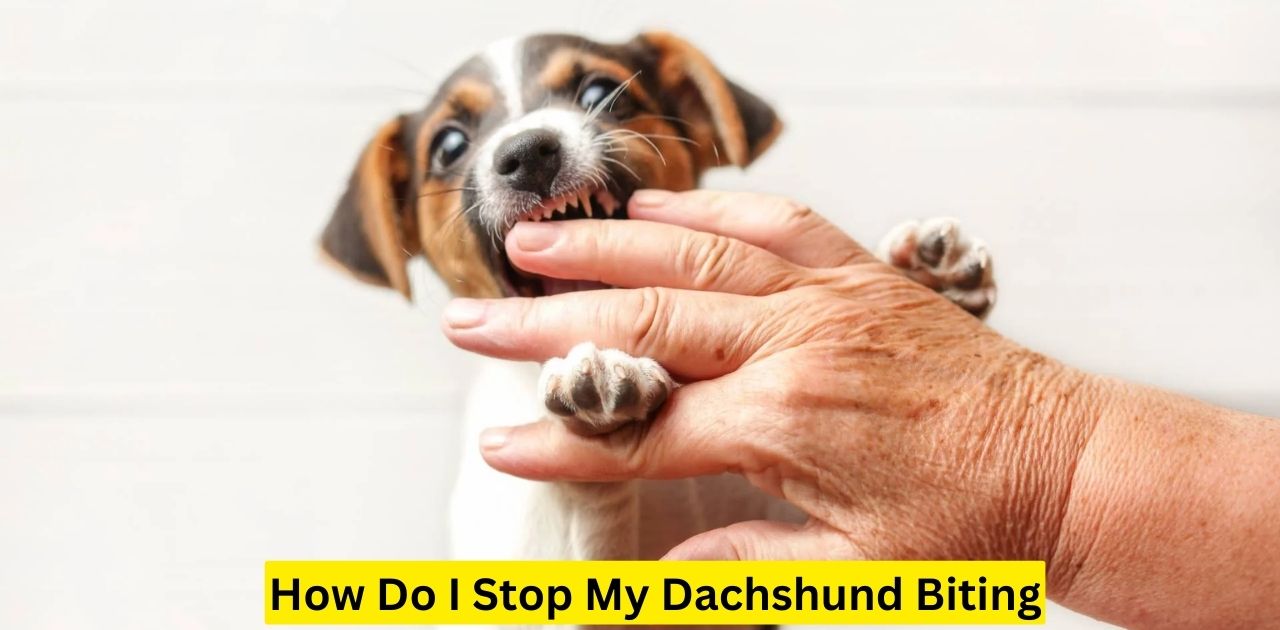Dachshunds, affectionately known as wiener dogs, have a bite force that defies their size. These pint-sized pups were originally bred for hunting, and their instincts remain intact. Without proper training, they’ll bark and bite when emotionally charged. While their 125 PSI bite force isn’t the mightiest, their sharp teeth can still leave an impression. Let’s delve into the reasons behind Dachshund bites and how to address this common behavior.
Ever wondered how a tiny Dachshund can pack a punch with its bite? Let’s uncover the surprising strength behind those little jaws.
How Hard Can A Dachshund Bite? Dachshunds, those adorable wiener dogs, may be small, but their bite force is not to be underestimated. These pups were originally bred as hunting dogs, and their instincts still drive them. Without proper training, they’ll bark to alert you or scare off intruders, and they might even frequently bite when emotionally charged. Their bite force, measured at 125 PSI, isn’t the strongest, but their sharp teeth can still cause injury. Let’s explore why Dachshunds bite and how to manage this behavior.
Why Do Dachshunds Bite?
Dachshunds are known for biting behavior due to their hunting instincts and stubborn nature. Their small size and elongated body shape make them prone to back problems, which can cause pain and defensive behavior.
Proper socialization and training from an early age can help minimize biting tendencies. It’s essential to understand a dachshund’s body language and provide a safe, nurturing environment to prevent potential bites.
Fear…
Fear can trigger biting behavior in dachshunds. These small dogs may feel threatened in unfamiliar situations or around new people, leading them to bite out of fear or self-defense.
Proper socialization and positive reinforcement training can help build confidence and reduce fear-related biting. It’s important to recognize signs of fear in a dachshund’s body language and provide a calm, reassuring environment to prevent defensive biting.
Anxiety…
Anxiety can also contribute to biting behavior in dachshunds. These dogs can become anxious due to changes in their environment, separation from their owners, or loud noises. When anxious, dachshunds may exhibit signs of stress, such as pacing, whining, or even biting.
Providing a consistent routine, plenty of exercise, and calming techniques can help reduce anxiety-related biting. It’s important to work with a professional trainer or behaviorist to identify the root cause of anxiety and implement effective strategies to address it.
Aggression…
Aggression is another potential cause of biting behavior in dachshunds. These dogs can exhibit dominance aggression, territorial aggression, or even resource guarding. Proper socialization and training from an early age can help prevent aggressive tendencies.
It’s crucial to establish oneself as the pack leader and consistently enforce rules and boundaries. If a dachshund displays signs of aggression, it’s best to consult a professional behaviorist or trainer to address the issue safely and effectively.
Dominance…
Dominance behavior can also lead to biting in dachshunds. These dogs may attempt to assert themselves as the pack leader, which can result in nipping or biting. It’s important to establish a clear hierarchy within the household, with the owner as the alpha.
Consistent training and positive reinforcement can help deter dominance aggression. Avoid physical punishment or yelling, as it can worsen the behavior. Instead, use calm assertiveness and reward-based training to reinforce desired behaviors and maintain a healthy balance of power.
Possessiveness…
Dachshunds can be possessive of their toys, food, or even their owners, which can lead to biting behavior. They may nip or bite to guard their resources from other people or pets.
To prevent possessiveness-related biting, it’s important to teach your dachshund to share and not guard objects. Positive reinforcement training can help them learn to relinquish items on command. It’s also important to provide separate feeding areas and toys for multiple pets to minimize competition. With patience and consistency, possessive behaviors can be managed effectively.
Territory…
Territorial behavior is another common cause of biting in dachshunds. These dogs have a strong instinct to protect their space, whether it’s their home, yard, or even their owner’s lap. They may bite or nip as a warning to intruders who invade their perceived territory. Proper socialization and training can help curb territorial aggression.
It’s important to establish boundaries and reinforce acceptable behavior through positive reinforcement. Providing a secure environment and meeting their exercise needs can also help reduce territorial biting tendencies in dachshunds.
How Do I Stop My Dachshund Biting?

Stopping a Dachshund Bite from biting requires patience, consistency, and positive reinforcement training. Start by identifying the root cause of the biting behavior, such as fear, anxiety, or dominance. Socialize your dachshund from an early age to build confidence and trust. Provide plenty of exercise and mental stimulation to reduce excess energy.
Use reward-based training to teach your Dachshund Bite alternative behaviors, like sitting or fetching a toy instead of biting. Avoid physical punishment or yelling, as these methods can worsen the behavior. Seek professional help from a behaviorist or trainer if the biting persists.
Start Training Early…
Early training is key to preventing biting behavior in dachshunds. Start socialization and positive reinforcement training as soon as possible, ideally during puppyhood. This helps establish good habits and builds a strong bond between you and your dachshund.
Reward desired behaviors with treats and praise, and consistently correct any nipping or biting with a firm “no” and redirecting attention to appropriate toys or commands. With early intervention, you can mold your dachshund into a well-behaved companion.
Treat Them Like A Dog, Not A Baby…
While dachshunds are adorable and affectionate, it’s important to treat them like dogs, not babies. Avoid coddling or carrying them excessively, as this can contribute to separation anxiety and possessive behaviors.
Allow your Dachshund Bite to explore and play independently, and enforce rules and boundaries consistently. Positive reinforcement training will help establish your role as the pack leader and prevent undesirable behaviors like biting. With patience and a balanced approach, you can raise a well-adjusted dachshund who understands their place in the household hierarchy.
Use Positive Reinforcement To Discourage Biting…
Positive reinforcement is an effective way to discourage biting in Dachshund Bite. Whenever your dachshund exhibits good behavior, such as playing gently with toys or responding to commands, reward them with treats, praise, or affection. This will reinforce the desired actions and make your pup more likely to repeat them.
If your Dachshund Bite does nip or bite, calmly say “no” and redirect their attention to an appropriate chew toy. Avoid scolding or punishing them, as this can lead to fear or aggression. With consistent positive reinforcement training, your Dachshund Bite will learn that gentle behavior is the best way to earn rewards and attention.
Redirect Their Anxiety…
Redirecting your Dachshund Bite anxiety can help curb biting behavior. Dogs often bite out of stress or fear. When you notice signs of anxiety like panting, pacing, or whining, interrupt the anxious behavior by refocusing your pup’s attention. Engage them in a game, trick training, or take them for a walk to burn off excess energy.
Providing mental stimulation and exercise can help reduce anxiety levels. You can also try calming techniques like massage, ambient music, or pheromone diffusers. If the anxiety persists, consult your veterinarian or an animal behaviorist for additional guidance. With patience and the right interventions, you can help your dachshund feel more relaxed and less prone to fear-biting.
Remember, Consistency Is Key…
Consistency is crucial when training a dachshund to stop biting. It’s important to enforce rules and boundaries in the same way, every time. If one person allows the biting behavior, while another person discourages it, it can confuse the dog and make the training process more difficult.
To effectively curb biting, everyone in the household should use the same positive reinforcement methods, like rewarding good behavior with treats and praise, and discouraging biting with a firm “no” and redirection. Stick to a regular routine and remain patient, as it may take time for your dachshund to unlearn the biting habit.
FAQ’s For How Hard Can A Dachshund Bite?
Are dachshunds prone to biting?
- Yes, dachshunds are prone to biting behavior due to their hunting instincts, stubborn nature, and tendency to develop back problems that can cause pain and defensive behavior.
Are dachshunds more aggressive than pit bulls?
- No, Dachshund Bite are not more aggressive than pit bulls. Pit bulls have a reputation for being aggressive due to their history of being bred for dog fighting, but with proper socialization and training, they can be gentle and loving dogs. Dachshunds, on the other hand, are more prone to biting due to their hunting instincts and small size.
What is the number 1 dog that bites?
- There is no definitive number one dog breed that bites the most, as biting behavior can be influenced by various factors such as socialization, training, and individual temperament. However, some breeds that are known to be more prone to biting include chihuahuas, dachshunds, Jack Russell terriers, and pit bulls.
Can you train a dachshund not to bite?
- Yes, it is possible to train a dachshund not to bite. Consistency, positive reinforcement training, and addressing the root cause of the biting behavior (such as fear, anxiety, or dominance) can help curb biting tendencies in dachshunds. It’s important to start training early and seek professional help from a behaviorist or trainer if the biting persists.
Conclusion, For How Hard Can A Dachshund Bite?
Dachshund Bite may be small in size, but their biting force can be surprisingly strong due to their strong jaws and teeth. While they may not have the most powerful bite among dogs, their determined nature and hunting instincts can make them persistent biters if not properly trained and socialized.
To prevent biting behavior in Dachshund Bite it’s important to start early with positive reinforcement training, provide plenty of exercise and mental stimulation, and address any underlying issues such as fear, anxiety, or aggression. Consistency is key, and owners should work with a professional behaviorist or trainer if the biting persists. With patience and the right approach, dachshunds can learn to be well-behaved companions who don’t resort to biting.










